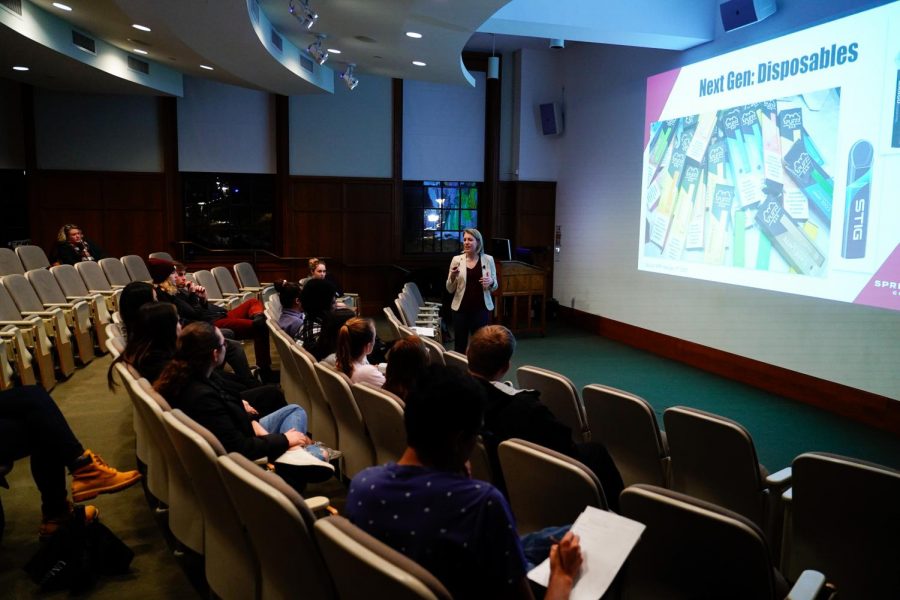Christine Johnston, an assistant director of alcohol and other drug education and health promotion at Springfield College, led a discussion on Tuesday at Amherst College to discuss vaping and its impact on the youth in an event called “Vaping Debunked: Schooling the JUUL & Beyond.”
“Let’s make this a conversation,” said Johnston, encouraging attendees to speak honestly about their smoking habits.
The lecture began with defining terms such as “e-juice” and explained how vaping devices work. With the number of vapers rapidly increasing from approximately seven million in 2011 to 41 million in 2018, vaping has become part of a relatively new discussion on health and addiction, according to Johnston.
Johnston said didn’t initially know much about vaping. However, after being asked to do a presentation on it, she said that she quickly became an expert.
“They said we need this at a conference and I didn’t know anything about it but I was like, great, I work with college students, vaping is important so let’s talk about that,” Johnston said.
Evidence shown by Johnston generated shock by some of the audience members, including a long list of substances contained in JUUL vapor such as carcinogens, heavy metals and ultrafine particles that can damage lung tissue. Johnston also shared a picture of a hospitalized teen with tubes and bandages covering his body.
Although some people are aware of the negative consequences which nicotine can have on their health, it does not always prevent them from smoking. Alyssa Forman, a sophomore history major and student health educator at Amherst College said that knowing how deadly vaping can be doesn’t necessarily lead to quitting.
“People don’t realize how bad certain vape devices are and the people that do know they are unhealthy don’t tend to care that much. I think there’s a lot of misconceptions about the fact that dab pens, which contain THC, are also a type of vape. People don’t realize that those have the same if not worse effects than something like a JUUL,” said Forman.
But for some students, the amount of information available on vaping isn’t enough to form an opinion.
“We probably don’t know enough information to give a definitive answer if its good or bad,” said Ron Liang, a junior linguistics major at the University of Massachusetts.
Other students, like UMass sophomore economics major Brandon VoPham, felt indifferent, saying, “Just don’t do it around me and I don’t care.”
Despite the different opinions on how good or bad vaping is, both Forman and Liang acknowledged that vaping is prominent on college campuses.
Johnston’s outreach initiative on college campuses does not only include raising awareness through presentations, but also through training peer health educators at Amherst College.
Maria Elena Little Endara can be reached at [email protected].




















